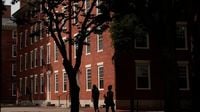BOSTON (AP) — In a dramatic confrontation between the Trump administration and Harvard University, the federal government has frozen more than $2.2 billion in grants and $60 million in contracts due to the institution's refusal to comply with demands aimed at curbing campus activism. The move, announced on April 14, 2025, marks the seventh instance of the administration wielding its funding power against elite universities, with Harvard's substantial endowment of over $50 billion positioning it uniquely to resist such federal pressure.
The Trump administration's letter to Harvard outlined a series of demands, including broad reforms to the university's governance and leadership, changes to admissions policies, an audit of diversity views on campus, and a cessation of recognition for certain student clubs. The stakes are high, as nearly $9 billion in federal grants and contracts are now at risk if Harvard does not comply.
Harvard President Alan Garber responded firmly, stating, "The University will not surrender its independence or relinquish its constitutional rights." His declaration of defiance resonates with a history of the institution's resistance against governmental overreach, contrasting sharply with previous administrations when compliance often took precedence over academic freedom.
In the past, the university faced similar pressures, such as during the Clinton and Bush administrations, when it refrained from protesting the military's "don't ask, don't tell" policy due to fears of jeopardizing federal funding. Under the Obama administration, Harvard was investigated for its handling of sexual assault cases, yet it complied with federal guidelines to avoid funding cuts.
The current administration's actions have raised concerns about the weaponization of civil rights laws in its campaign against higher education. Critics argue that Title VI of the Civil Rights Act, which prohibits discrimination based on race, color, or national origin, is being misused to control freedom of speech on campuses by linking it to allegations of antisemitism. The administration has accused universities of allowing antisemitism to flourish during protests related to Israel's actions in Gaza, a claim that Garber refuted, asserting that Harvard has made significant reforms to address these issues.
The Trump administration's demands included a shift to "merit-based" admissions and hiring policies, a ban on face masks—seen as a target against pro-Palestinian protesters—and a directive to cease recognition of any student group that endorses illegal activities. Such measures have been met with resistance, prompting Harvard alumni to rally in support of the university's autonomy, urging it to legally contest what they deem unlawful demands threatening academic freedom.
Anurima Bhargava, one of the alumni advocating for this cause, stated, "Harvard stood up today for the integrity, values, and freedoms that serve as the foundation of higher education. Learning, innovation, and transformative growth will not yield to bullying and authoritarian whims."
The freezing of funds has sparked protests on campus and a lawsuit from the American Association of University Professors, which argues that the Trump administration failed to follow legal procedures under Title VI before initiating cuts. The lawsuit contends that the demands imposed on Harvard are not remedies for any alleged noncompliance but rather an attempt to impose political views on the institution.
As the situation unfolds, the broader implications of the Trump administration's tactics are becoming increasingly clear. The administration's aggressive stance against perceived left-leaning institutions signals a strategic effort to reshape higher education and curtail academic independence. The freezing of funds serves not only as a punitive measure but also as a warning to other universities that may consider resisting similar demands.
Columbia University, which previously acquiesced to similar threats, has also begun to express its commitment to maintaining autonomy. Claire Shipman, Columbia's acting president, stated that the university would reject any agreement that requires relinquishing its independence as an educational institution.
The confrontation between Harvard and the Trump administration sheds light on the precarious balance universities must navigate between academic freedom and federal funding. The ongoing struggle raises questions about the future of higher education and the potential need for institutions to reassess their reliance on federal support to preserve their independence.
In a notable response to the funding freeze, Harvard announced plans to borrow $750 million from Wall Street, signaling a willingness to operate without federal funds if necessary. This decision reflects a growing recognition among universities that they may need to adapt to an environment where federal support comes with strings attached.
Amid this turmoil, the Trump administration's narrative frames its actions as a response to rising antisemitism on campuses, yet critics argue that the real aim is to quash dissenting views and reshape the academic landscape to align with its political agenda. The administration's approach has drawn ire from civil rights advocates, who warn that using federal funding as leverage undermines the fundamental principles of free inquiry and expression that universities stand for.
As the standoff continues, the outcome could set a precedent for how universities engage with federal authorities and navigate the complexities of funding and academic freedom. Harvard's bold stance may inspire other institutions to assert their rights and challenge governmental overreach, potentially reshaping the landscape of higher education in the years to come.
Ultimately, the clash between Harvard and the Trump administration serves as a crucial test of the resilience of academic institutions in the face of political pressure. The implications of this confrontation extend beyond Harvard, potentially influencing how universities across the nation respond to similar threats in the future.


